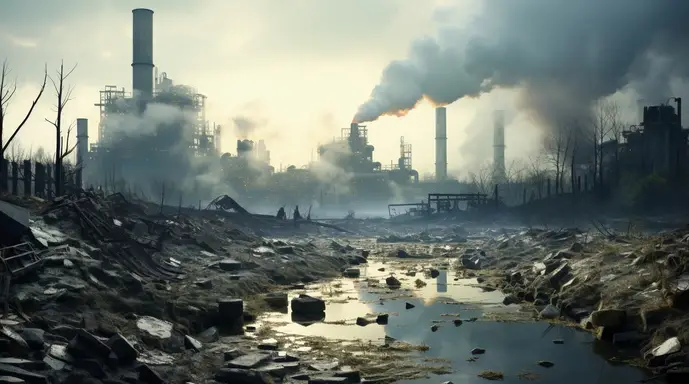In the 44 years since Beckhoff Automation was founded, owner Hans Beckhoff says he has never seen a crisis as severe as the one Germany is currently facing.
"We usually have a crisis every five to eight years, but this time it's different—it's a serious and deep one," says Beckhoff, whose company makes automated control systems for industries such as manufacturing and energy.
Beckhoff Automation is part of Germany's Mittelstand, a group of small and medium-sized businesses that are vital to the country's economy, making up 99% of all companies and providing about 59% of jobs. Despite the challenges, Beckhoff Automation is still doing relatively well, though Frederike Beckhoff, Hans's daughter and the company's corporate development manager, says this year's results won’t be nearly as strong as those of the past few years. "The economic slowdown is real," she adds, acknowledging the tough times ahead.
German manufacturers have been hit by a range of challenges over the past few years. These include soaring energy prices caused by the war in Ukraine, rising inflation, and growing competition from China. In addition, businesses are dealing with outdated infrastructure, including a crumbling rail network and aging roads. Companies also complain about bureaucratic hurdles, inconsistent government policies, and rising labor costs and staff shortages.
"The last three years have been particularly hard," says Joachim Ley, CEO of Ziehl-Abegg, a manufacturer of ventilation and air conditioning systems. "What we need is consistent decision-making. It’s hard for businesses to plan when policies change all the time."
Germany's coalition government, which has struggled to respond effectively to these issues, broke apart recently, and a general election is scheduled for February 2024. In the meantime, businesses are feeling the strain of sudden policy reversals, like the government’s pullback on subsidies for heat pumps and electric vehicles. These shifts have hurt both domestic sales and Germany's green energy goals.
One of the biggest challenges facing German manufacturers is competition from China, particularly in the automotive sector. Domestic demand for German cars has cooled in China, and Chinese carmakers have become much more competitive, especially in the electric vehicle (EV) market. According to Dr. Cyrus de la Rubia, chief economist at Hamburg Commercial Bank, the export of Chinese electric cars has surged by over 1,000% since 2021, while German exports have grown by only 60%. This shift is putting pressure on German carmakers, including Volkswagen, which recently announced plans to close domestic plants for the first time in its history.
"We have to get more competitive," says Frederike Beckhoff. "The wealth we enjoy in Germany is not something we can take for granted."
While the situation looks tough for manufacturers that rely on low-cost production, there is hope for high-quality, innovative products that focus on world-class engineering and intellectual property. Dr. Klaus Günter Deutsch, head of industrial and economic policy at the Federation of German Industries, argues that Europe needs to boost innovation to stay competitive on the global stage.
However, German manufacturers, like Volkswagen and BASF, which has also warned of job cuts, may have to face painful restructuring. Hans Beckhoff believes this crisis could be a wake-up call for the industry. "It’s good for German industry that Volkswagen is facing challenges—it will motivate companies to act," he says. "Sometimes, a crisis can push us to make necessary changes."
While the immediate future remains uncertain, there is some hope that Germany can turn the situation around in the long term. Dr. de la Rubia remains optimistic, believing that the need to update Germany's infrastructure is so clear that any future government will have to take action. "I hope they’ll say, ‘We have a crisis, and now we will make a big leap forward.’"
Germany has faced tough times before and emerged stronger, especially after World War II. Though the circumstances are different now, many believe the country still has the ability to overcome this crisis and come out even more competitive in the end.
